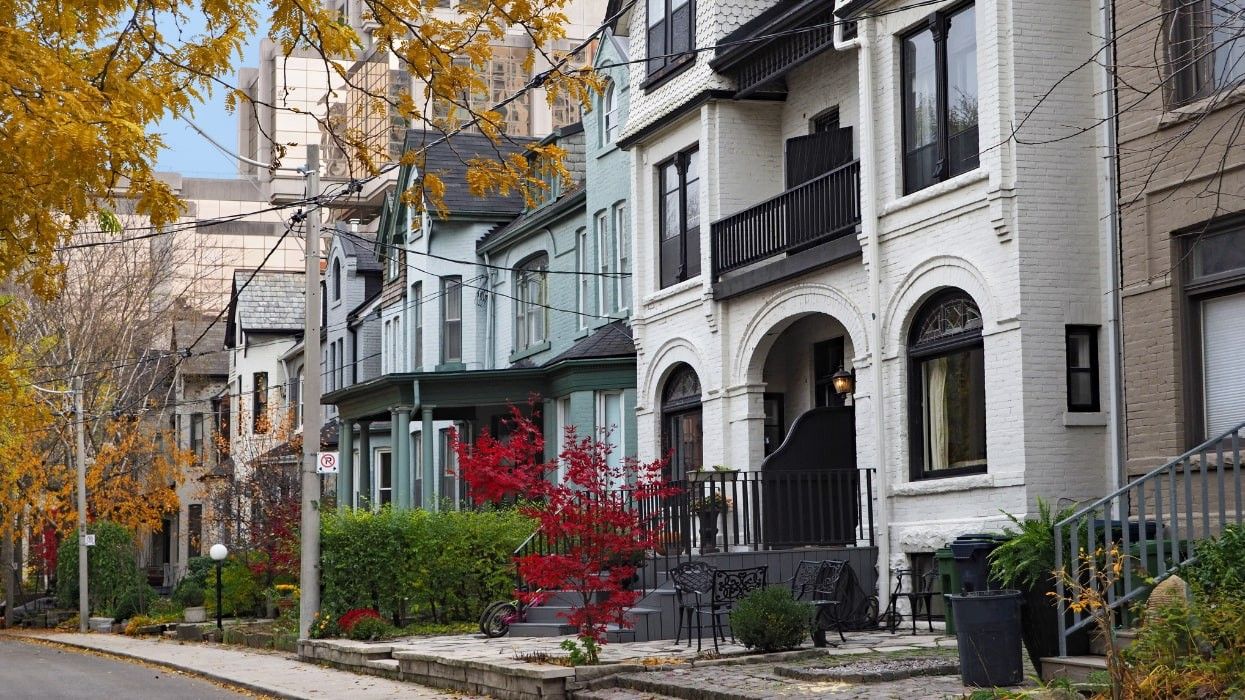As rents continue to rise across the country, Canadians' ability to save for a downpayment on a home of their own — a dream that persists despite rising prices — erodes further.
Last month, a collective of housing experts drafted a blueprint to build two million new purpose-built rental units by 2030, a figure the authors, which include the PLACE Centre and the Real Property Association of Canada, say would restore affordability.
Amongst the recommendations put forth, the report called for a multi-sector approach to solving the housing crisis — it won’t be remedied by one single solution or one key player. Rather, it requires the collective action of governments, developers, and the private sector.
"Everybody talks about the housing crisis. Everybody talks about the need for action. But, unfortunately, there are not many people that are actually doing something about it," entrepreneur and philanthropist Miles Nadal told STOREYS. "We thought that a private sector solution for democratizing home ownership was crucial, and we thought we would take that on."
The "we" he’s referring to is Ourboro, a Toronto-based company taking an innovative approach to co-ownership.
In a quest to make homeownership attainable for more Canadians, Ourboro contributes up to $250K towards a down payment in exchange for a co-ownership stake in the property; the buyer just needs to provide at least 5% of the total down payment. Ownership is split based on how much each party contributed.
Ourboro doesn’t charge interest on its investment. When the property is sold, first, the homeowner gets back all the payments they made towards their mortgage principal, and the remaining proceeds are divided according to the original ownership split — if a homeowner contributed 50% of the downpayment, they receive 50% of the home’s appreciation.
While the model is ideal for those looking to sell within 10 years — so homeowners don’t have to share decades worth of appreciation — the co-ownership agreement can last for up to 30 years. If they don’t want to sell, the homeowner can buy Ourboro out at any point.
It’s a company Nadal believes in so whole-heartedly that he invested the first $10M of operating costs and underwrote the first 100 or so homes purchased with Ourboro. But, beyond knowing a good business when he sees one, Nadal’s passion is personal.
"I grew up on Shallmar Boulevard, near Bathurst and Eglinton, and we never owned a home. And the reason why we never owned a home is because we never had the down payment," Nadal said. "If Ourboro had been around, we would have been homeowners."
Alex Kjorven, Ourboro’s Chief Product Officer, told STOREYS that since coming to market in the spring of 2022, the company has received approximately 1,500 applications from qualified buyers, and has 100 to 120 active buyers at any given time. They’ve expanded to a slew of regions and cities across Ontario, including Kitchener-Waterloo, Hamilton, and London.
Co-Founded by Nick Pope and Norm Tasevski, Ourboro is now partnered with Nadal’s Peerage Realty Partners.
Investments and partnerships have been foraged with numerous banks and industry leaders alongside multiple private investors — a true multi-sector approach as prescribed in the aforementioned report.
"No one thing is going to fix the housing crisis — you need to attack the issue from the supply side, the demand side, and the financing side," Nadal said. "That is critical to creating a lot more opportunity for a lot more people to own homes in Canada."
While the company isn’t directly influencing the lack of supply by building more homes, by allowing renters to break into the ownership market Ourboro effectively frees up space for other renters. With less demand on the rental market, affordability can start to improve.
As the down payment is often one of the biggest hurdles to entering the ownership market, Ourboro alleviates the affordability issue plaguing prospective purchasers, too. As Kjorven notes, the co-ownership model also reduces competition between buyers and investors by having them join forces.
"If people can buy on their own that’s of course the better option. But when you compare renting forever or never being able to break into the real estate market, co-owning is a very pragmatic intermediary step to being able to own on your own," Kjorven said. "If you look at the positive externalities of people who own their homes — the impact it has on communities, on civic engagement, on their own financial resiliency, and on their children — it’s profound."
"That’s the true tangible benefit of democratizing homeownership. It’s giving more people access to the same benefits and positive outcomes that generations before them have been able to take for granted."





















